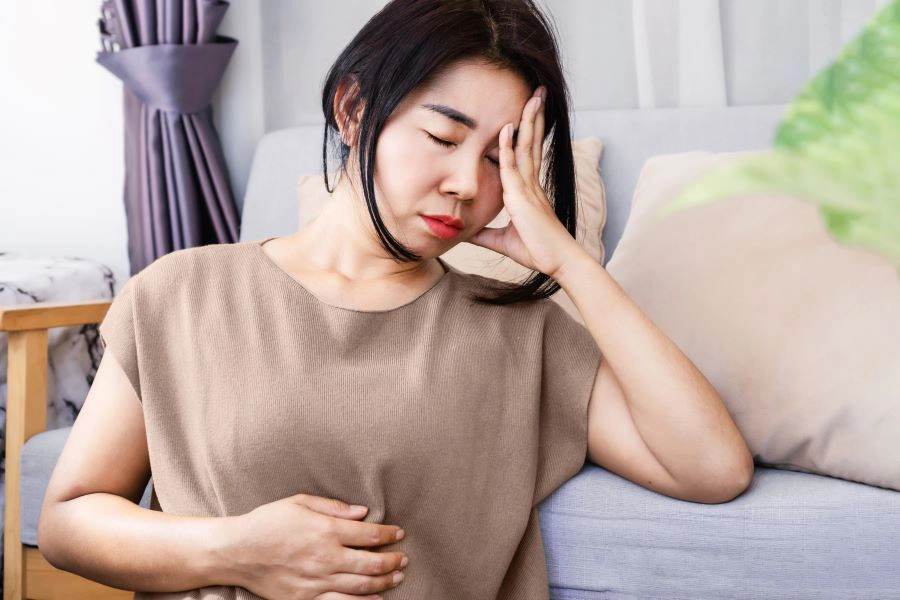A review exploring the connection between gut and mental health found the “strongest proof” yet that the microbiome directly affects brain chemistry, stress responses, and behaviors in animal models. It underlines that the gut can potentially improve global mental health with practical diet, stress, and environmental changes to shape gut bacteria.
The publication in Nature Mental Health found disrupted gut patterns in conditions like depression and schizophrenia.
Researchers from the University of South Australia also found that early trials of probiotics, diet changes, and fecal microbiota transplants improve mood and anxiety.
Another gut-brain connection was exemplified when psychiatric medications were seen to change the microbiome.
Lead author and Ph.D. candidate Srinivas Kamath says the gut could hold the key to improving mental health globally. “The gut–brain connection is one of the most exciting frontiers in mental health research.”
“We already know that the trillions of microbes in our digestive system talk to the brain through chemical and neural pathways, affecting our mood, stress levels, and even cognition. But the big question is whether changes in gut bacteria actually drive mental illness or mirror what’s happening elsewhere in the body.”
Ineffective and inaccessible treatments
According to the WHO, almost one in seven people lives with a mental health disorder, and despite available treatments, most people with the condition lack access to proper care.
Depression and anxiety are the leading causes, while current medications or therapies are not effective for one-third of patients.
The researchers note that these figures underline the need for new and more effective and accessible treatment.
“There’s a growing awareness that lifestyle factors such as diet, stress, and environment can shape both gut bacteria and mental well-being,” says co-researcher Dr. Paul Joyce, head of the Translational Nanomedicine & Biotherapeutics Group.
“If we can prove that gut bacteria play a direct role in mental illness, it could transform how we diagnose, treat, and even prevent these conditions. Microbiome-based therapies such as probiotics, prebiotics, or tailored diets may offer accessible, safer, low-cost, and culturally adaptable options that complement existing care.”
Diverse populations and long-term testing
Despite the promising findings, the researchers say that future studies should track changes over time and study more diverse and larger populations. This will enable a better understanding of how diet, environment, and culture shape the gut-brain axis.
“Clinical trials should move beyond small, short-term studies and instead test whether microbiome-based therapies can deliver lasting benefits, especially when combined with existing treatments,” Joyce says.
“By unlocking the gut’s role in mental health, we can develop practical, scalable tools for prevention and care, giving clinicians and patients new options to manage well-being. Mental health doesn’t start and end in the brain. It’s a whole-body issue — and the gut may be the missing piece of the puzzle.”
Mental health and nutrition
Research into nutrition interventions for improving mental well-being is rising. Recently, we spoke to BiOkuris, which found that its synbiotic BK002 benefits gastrointestinal symptoms and significantly reduces anxiety.
Sixteen US college students following a well-formulated ketogenic diet for at least ten weeks experienced a 70% decrease in self-reported and clinician-rated depression symptoms, according to recent research.
In other food findings, a low-calorie diet may be associated with an increased risk of depressive symptoms, particularly among men and those who are overweight.
A review of over-the-counter herbal medicinal products and dietary supplements identified 64 products evaluated for depression. Products with promising but limited evidence include folic acid, lavender, zinc, tryptophan, rhodiola, and lemon balm. Also, Lion’s Mane is noted to reduce stress in a clinical trial, while cannabis was seen to improve sleep and anxiety in insomnia patients.
Meanwhile, a clinical trial found that a dose of psilocybin brings sustained reductions in depression and anxiety in cancer patients. A separate study on psilocybin found that people reported better psychosocial functioning, including a greater sense of meaning in life and psychological connectedness, than those taking standard treatment.

